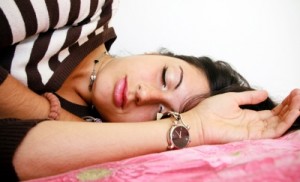Sleeping/Insomnia
Most of us have experienced times when we find ourselves unable to get to sleep. We can all deal and function with only occasional sleeping disturbances. When we find ourselves not having enough sleep night after night this can effect mood, concentration, memory and more creative aspects of your thinking.
How much sleep do we need?
Adults generally need 7-8 hours sleep per night. A few people feel that 4 hours is enough and some require as much as 10 hours per night. As we grow older we require less sleep.
What effects sleep?
Many things effect sleep, including food, exercise, medications, caffeine, illness, stresses, worries, mood, alcohol and the comfort of the room. If you have a ongoing sleep problem it’s worth considering these areas and making the necessary changes
What can help?
- Consider if you make changes to your lifestyle and deal with any physical problems you have
- Establish a regular routine and time for bed and awakening: e.g. bath, drink, book & bed
- Control thoughts – if you have negative thoughts, challenge these and replace with positive thoughts
- Relaxation – learn how to slow down your breathing, concentrate on relaxing your body and use imagery to help to drift off.
Lifestyle & Physical Problems
If you are experiencing pain or breathlessness which stops you sleeping – make an appointment with you GP, who may be able to offer a solution for you. Reduce or eliminate drinking alcohol in an evening as its a diuretic and tends to wake you during the night. Cut out stimulants (coffee, tea and tobacco and energy drinks). Assess the comfort of your mattress – if its uncomfortable maybe a new one would be an investment?
Regular Routines
A regular calming routine can help you be settle better into sleep. Try to avoid eating meals too close to your bedtime. Get any chores out of the way in the early evening, so that for at least an hour before bed you are chilling and settling down. You could maybe watch TV or do a hobby, have a warm milky drink, read, have a soak in the bath.
Resist the urge to have naps during the day and until you start to see regular improvements, get out of bed at the same time every morning (don’t be tempted to sleep in).
Hypnotherapy – Positive Mindset
Therapy is very successful to support you to replace any negative thoughts and stress into positive thoughts. Techniques are used to wash worries away, to see an alternative way of thinking and to discover beneficial solutions to your thoughts or problems.
Hypnotherapy is a state of being deeply relaxed, with 60 minute hypnotherapy session feeling like the equavalent of a full nights sleep. Hypnotherapy can have a remarkable effect on your ability to sleep. Self hypnosis and and breathing techniques are taught to you to use and practice at home.
Hypnotherapy – Guided Imagery
In addition to reducing anxieties and issues that may be keeping you awake, hypnotic suggestion and imagery guides you into a natural sleep and to stay asleep. Should you find that you wake up during the night you can use self hypnosis to go back to sleep quickly and easily.




